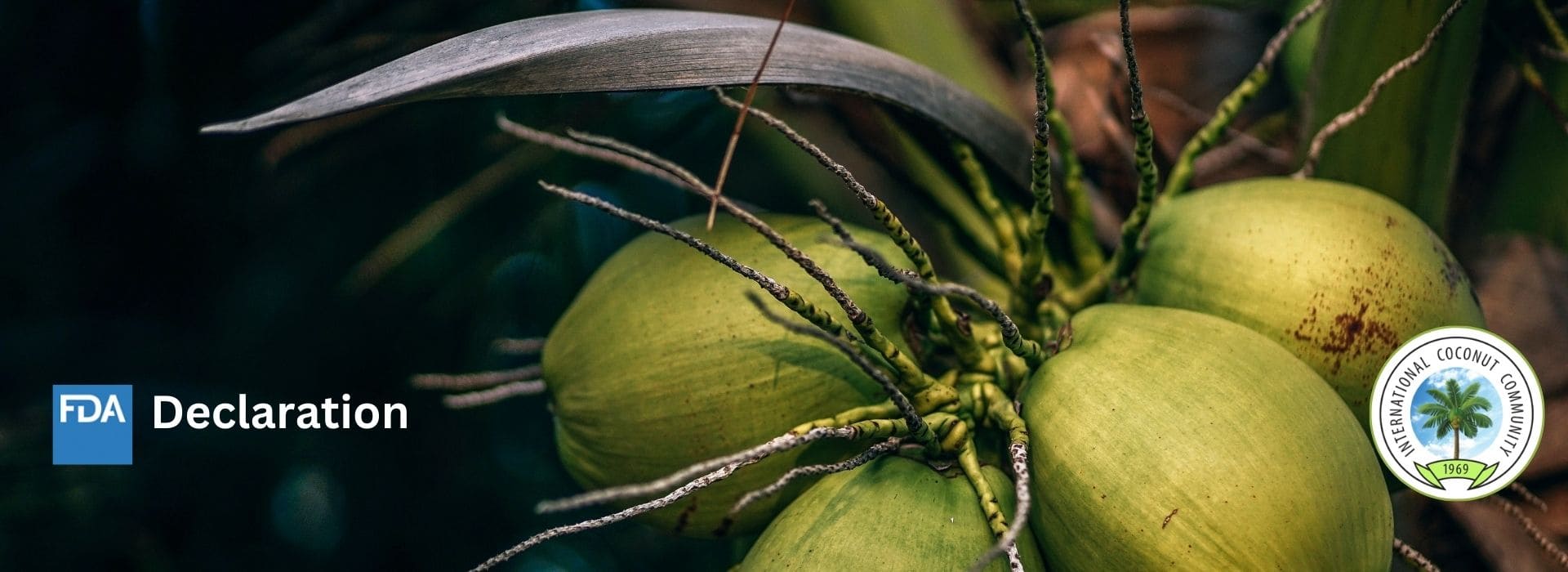The U.S. Food and Drug Administration (FDA) has clarified that coconut is not classified as a tree nut in its recently published allergen guidance. The updated document, titled “Questions and Answers Regarding Food Allergens, Including the Food Allergen Labeling Requirements of the Federal Food, Drug, and Cosmetic Act (Edition 5): Guidance for Industry” addresses labeling requirements under the Food Allergen Labeling and Consumer Protection Act of 2004 (FALCPA). For some time, FALCPA had been under scrutiny with challenges to its scientific merit based on very broad interpretations of the term ‘tree nut.’ CCA had investigated challenging FALCPA but until 2022, no major changes had tested the law itself. On January 1, 2023, sesame was added as a 9th major allergen class and provided an actual test and process for further changes to FALCPA.
The guidance, finalized this month, specifies in Questions C7, C8, and Table 1 that tree nuts considered major allergens are limited to those with scientifically established allergenicity. Coconut is not included in this list. This clarification resolves long-standing uncertainty about coconut’s categorization and its implications for labeling and consumer safety. The update is expected to bring significant benefits to the coconut industry, easing trade barriers, reducing regulatory burdens, and enhancing consumer confidence.
Coconut Association of Americas (CCA) engaged with FDA and supported key research that examined coconut allergen prevalence, severity, and cross-allergenicity. The findings indicated that coconut’s allergen risks are significantly lower than those of major allergens covered by FALCPA. The coalition’s activities included funding a pivotal study that provided robust data supporting coconut’s exclusion from the tree nut allergen list in the past 24 months included supporting and underwriting a paper in which coconut allergenicity prevalence, sector. This clarification is also expected to provide clarity for consumers, particularly those with tree nut allergies, by ensuring they are not misled into avoiding coconut products unnecessarily. The decision represents a win for informed consumer choice and fair trade practices.severity and cross-allergenicity were examined. The data suggested that prevalence and severity were in some cases several orders of magnitude less for coconut compared to listed major allergens. This development is obviously good news for the coconut category, and also removes trade challenges. For brands and co-mans, this represents the lifting of a major burden, at the same time providing consumers with clear and not misleading information – coconuts are not tree nuts and just because you are allergic to one does not mean you are allergic to or should avoid coconuts.
The International Coconut Community (ICC) welcomed the FDA’s decision, emphasizing its importance for the global coconut industry. ICC leadership expressed appreciation for the contributions of the ICC Scientific Advisory Committee on Health (SACH) team, particularly Dr. Fabian M. Dayrit, Professor, Department of Chemistry Ateneo de Manila University, Philippines, SACH Chair and Dr. Marry T. Newport, Spring Hill Neonatology, Inc., USA, SACH Member, whose relentless efforts, along with dissemination of information by ICC through letters, publications, and media, play a vital role in achieving this regulatory milestone. Their works also underscored the value of evidence-based advocacy in addressing misconceptions and advancing the interests of the coconut

